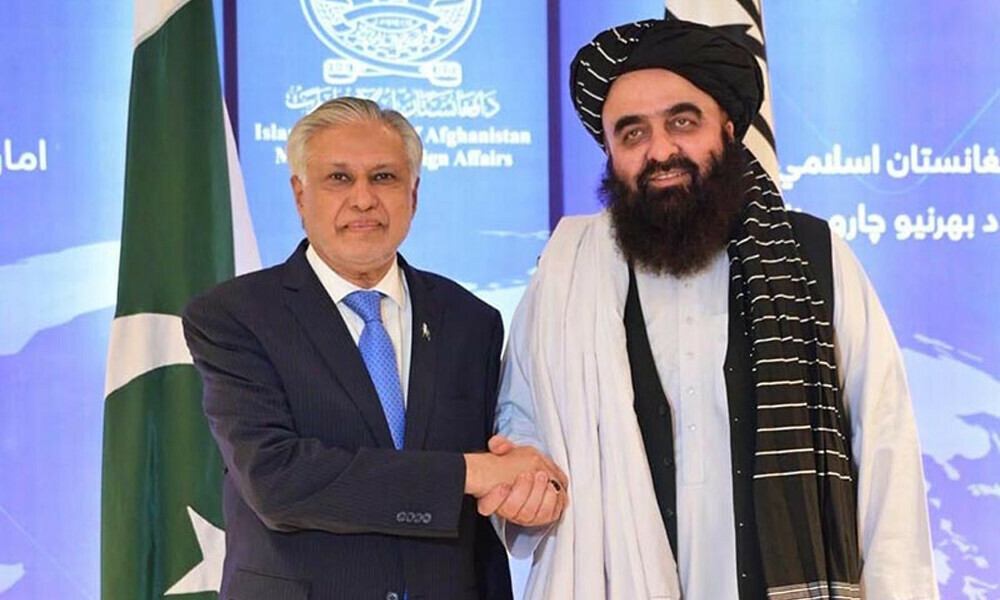By Staff Reporter
ISLAMABAD: Pakistan announced on Friday it will upgrade its diplomatic mission in Afghanistan to ambassadorial level, a significant step toward normalising ties with the Taliban administration after years of friction over cross-border militancy and a mass deportation drive targeting Afghans.
Deputy Prime Minister and Foreign Minister Ishaq Dar said the move reflects a “positive trajectory” in bilateral relations after his “very productive” recent visit to Kabul.
“To maintain this momentum, I am pleased to announce the decision of the Government of Pakistan to upgrade the level of its Chargé d’Affaires in Kabul to the level of Ambassador,” Dar said in a post on X.
“I am confident this step would further contribute towards enhanced engagement, deepen Pak-Afghan cooperation in economic, security, [counterterrorism] and trade areas and promote further exchanges between two fraternal countries.”
The agreement to exchange ambassadors was finalized during an informal trilateral meeting in Beijing earlier this month involving Dar, Afghanistan’s interim Foreign Minister Amir Khan Muttaqi, and Chinese officials. The three nations also agreed to expand cooperation under China’s Belt and Road Initiative (BRI), specifically extending the China-Pakistan Economic Corridor (CPEC) into Afghanistan. CPEC represents over $60 billion in Chinese investments within Pakistan.
The diplomatic shift follows intense strain. Pakistan has consistently accused the Taliban regime, which seized power in August 2021, of providing sanctuary and support to militant groups conducting cross-border attacks, particularly the Tehreek-e-Taliban Pakistan (TTP) and the Baloch Liberation Army (BLA). Pakistani officials have maintained these groups used Afghan soil to plan and launch deadly attacks on civilian and military structures in Pakistan.
Kabul has repeatedly denied these allegations, countering that Pakistan’s security challenges are internal matters. Relations plunged to a new low in late 2023 and 2024 when Islamabad initiated a stringent nationwide campaign to deport undocumented foreigners. The vast majority of those expelled – estimated in the hundreds of thousands – were Afghan nationals. Pakistani authorities asserted that some deportees had links to militant activities.
Despite the friction, both sides have cautiously sought engagement in recent months. In March 2025, Special Envoy for Afghanistan Mohammad Sadiq visited Kabul for the first time in over a year. His mission was followed by a high-level visit by Dar on April 19, where both sides pledged to prevent their territories from being used for terrorist activities and agreed on trade facilitation measures.
Although no country has formally recognised the Taliban regime since its return to power in 2021, several including China, the United Arab Emirates, and Russia maintain ambassadors in Kabul. China and the UAE also host Taliban-appointed ambassadors, while Russia has agreed to accept a Taliban ambassador in Moscow.
Copyright © 2021 Independent Pakistan | All rights reserved




